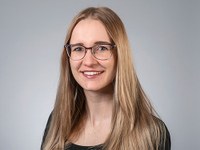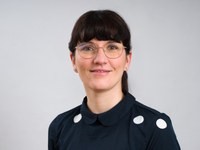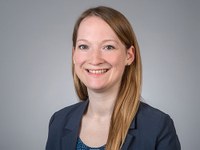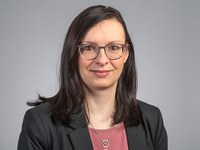Recognition & Certification
Germany has a three-tier certification structure to help ensure that cancer patients are cared for according to consistently high standards, from diagnosis to therapy and aftercare.
Within this three-tier model, the organ cancer centers certified by the German Cancer Society (DKG) form the broad basis. Organ cancer centers offer the most comprehensive high-quality care possible, especially for common tumor diseases. The second tier is occupied by the oncology centers, also certified by the DKG, which pool expertise for several diseases, including rare ones. Each organ cancer center specializes in one organ, while the oncology centers treat several tumor types under one roof.
The top of the pyramid is formed by the Oncological Centers of Excellence, which are certified by Deutsche Krebshilfe (DKH). They have a major focus on combining research and patient care and are involved in the development of new therapies and the establishment of new standards. As centers of excellence, they are also attractive training and work places for early career doctors and scientists.
NCT/UCC Dresden - Excellence throughout
The National Center for Tumor Diseases Dresden (NCT/UCC) is one of the German Oncological Centers of Excellence recognized by Deutsche Krebshilfe (DKH). The Cancer Center at University Hospital Dresden is the only center of its kind in the new federal states of Germany and one of only three centers nationwide to have held this distinction continuously since the start of the funding program in 2007. The requirements for the Oncological Centers of Excellence are high, both in terms of high levels of institutionalized cooperation between different medical disciplines, and in terms of linking clinical care with patient-oriented research. In addition to diagnostics and therapy, prevention also plays a role and includes, for example, research into carcinogenesis. DKH recognition is valid for four years.
Since 2014, the NCT/UCC has also been certified as an oncology center by the German Cancer Society (DKG). Eleven organ cancer centers are established at the NCT/UCC Oncology Center. Centers certified according to the DKG requirements are networks of inpatient and outpatient facilities in which all disciplines involved in the treatment of a cancer patient work closely together. In addition to surgeons, radiation oncologists, radiologists, nuclear medicine specialists, pathologists and experts in drug-based tumor therapy, these also include specialized oncological nursing staff, psycho-oncologists, social workers and nutritionists, among others.
Certified quality management
An essential characteristic of interdisciplinary medical centers like the NCT/UCC is the large number of interfaces with internal and external partners. In order to optimize the design and coordination of transitions and workflows between the various professional groups and disciplines, a quality management system was introduced in accordance with the DIN EN ISO 9001 standard.
This quality management system is regarded as a management tool to achieve the clearly defined long-term and short-term goals. All work processes and responsibilities are systematically and transparently described in an organization manual, which forms the authoritative basis for the work of all staff members and regulates cooperation with the participating institutions. The quality management system was certified for the first time in 2004 and has been successfully recertified at subsequent audits.
The certified quality management system also ensures compliance with the DKG’s requirements for the oncology center and the organ cancer centers supervised by the NCT/UCC. Both organ cancer centers and oncology centers must establish interdisciplinary care structures and document quality on the basis of professional guidelines. This is assessed annually in an external audit.
Team central quality management NCT/UCC
E-Mail: karina.noack(at)ukdd.de

E-Mail: sophie.biesenthal(at)ukdd.de

E-mail: juliane.ahnert(at)ukdd.de




